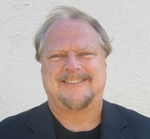As we all age gracefully, it is funny how the concept of time accelerating becomes a new reality. Granted, theoretically time does not accelerate or slowdown; however, every passing year becomes just a smaller piece of our lives giving the passage of time the appearance of acceleration. In fact, today is already yesterday’s tomorrow. Now before you even start to wonder, No Dr. D has not lost his mind or his marbles. The doctor is just drinking some Jack, smoking a good cigar, and reflecting on 2014.
For the dedicated readers of Dr. D’s weekly rants and tirades, thank you for your readership. I really hope you find some value in the guidance provided in 2014. Dr. D hopes that each of you had a joyous holiday season and a Happy New Year.
For the device establishments that Dr. D has had the unfortunate pleasure of writing about in FY 2014, I hope FDA’s tough love has made your organizations stronger. The best advice Dr. D can offer to any device establishment, struggling with compliance issues or not, is: “There is no such thing as maximum compliance, there is no such thing as minimum compliance, there is only compliance!” Once device establishments figure out the compliance piece, life in a regulated environment becomes much more enjoyable.
For those device establishments, domestically and outside of the United States, that are inclined to make poor or criminal decisions resulting in bad medical devices hurting people, the doctor suggests speaking with Jean-Clause Mas, the former founder of Poly Implant Prothèse (PIP). In 2013 he was sentenced to four years in a French prison. It’s too bad Devil’s Island was not a viable option for this former butcher turned medical device entrepreneur.
If you live in the United States, the Synthes’ Four; Huggins, Higgins, Bohner, and Walsh (sounds like a law firm versus four executives needing a law firm) may be available for a quick chat. This team was convicted in 2011 for their role in running an illegal clinical trial. The doctor hopes their jail time was productive.
The good news is that the aforementioned bad apples are truly not reflective of the medical device industry professionals that work within the quality, regulatory, and statutory framework to bring cutting-edge technology to healthcare providers and patients around the globe.
However, Dr. D will say this: Thanks to Jean-Claude and the PIP debacle, the entire device industry that introduces product into the EU is being punished. Hey European Commission, news flash for you, 2013/473/EU is not improving the safety and efficacy of medical devices being entered into commerce in the EU. In fact, the only thing it is doing is improving the bottom line of the notified bodies. No doubt many of the notified bodies would like to grab some wood, nails and a hammer and build across to crucify old Dr. D but I am just saying what industry is already saying behind closed doors.
In fact, Dr. D has some smaller clients that have seen their annual costs associated with their notified bodies increase three and four fold. That is absolutely nuts. There are notified bodies out there that have taken 2013/473/EU and built their own rules around it resulting in the rapid growth of a new profit center, unannounced inspections. Some of the notified bodies will try to convince you that that did not want this regulation. Seriously? Scripting a regulation that results in the making of a significant amount of money for notified bodies is a bad thing?
The good news is that there are good notified bodies out there that are reasonably priced for their services. Dr. D’s challenge to your organization is to choose wisely. In fact, when your notified body contract comes up for renewal, take the time to price-comparison shop. This effort will save your organization thousands of dollars each year. For those organizations searching for a notified body for the first time, feel free to drop Dr. D a line and I will point you in the direction of some good notified bodies that will not result in the proverbial selling of the kitchen sink to obtain good quality and regulatory support at a reasonable price. Regardless, unless industry pushes back, the price of admission into the EU’s medical device industry will continue to escalate.
In closing, thank you again for joining Dr. D and I hope you find value in the guidance provided. Until the next installment of DG – cheers from Dr. D. and best wishes for continued professional success.





